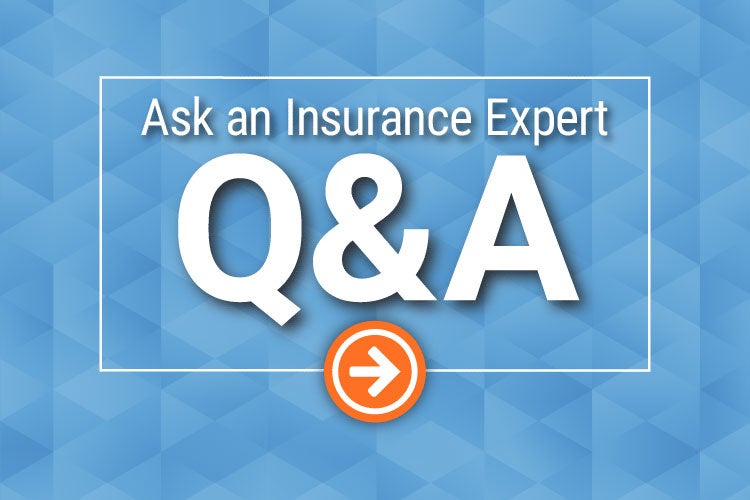
Table of Contents
- Are repairs covered under a standard New Jersey car insurance policy?
- When and how does New Jersey car insurance cover repairs?
- What will it cost me if New Jersey car insurance doesn't fully cover my repairs?

Are repairs covered under a standard New Jersey car insurance policy?
My car was recently damaged during a hailstorm and I’m going to need some significant repair work done. Are repairs covered under my New Jersey car insurance?

The answer is that it depends. Your New Jersey car insurance policy covers repairs only under certain circumstances. But it’s important to know that coverage for repairs is not automatically included in a basic or standard New Jersey auto insurance policy. You need to purchase additional coverage to make sure your repairs are covered.
Drivers in New Jersey must have the following bare minimum auto insurance:
- $15,000 bodily injury per person per accident (covers injuries for other drivers if you’re at fault)
- $30,000 bodily injury for all persons per accident (covers injuries for other drivers if you’re at fault)
- $5,000 property damage liability (covers repairs to other vehicles if you’re at fault)
- $15,00 personal injury protection (PIP) (covers your own injuries regardless of who is at fault for an accident)
- $15,000/$30,000 uninsured/underinsured motorist bodily injury (covers your own medical expenses if you’re in an accident with an uninsured or underinsured driver)
- $5,000 per accident with $500 deductible uninsured/underinsured motorist property damage (covers your vehicle repairs if you’re in an accident with an uninsured or underinsured driver)
You’ll notice that none of these covers repairs for your own vehicle after a hailstorm or any situation besides a collision with an uninsured or underinsured driver.
If you’re in an accident where the other driver is at fault, his or her New Jersey property damage liability insurance may cover some of your repair costs. If you’re at fault or if your damage occurs in some other way, you’ll not have coverage under a basic or standard New Jersey auto insurance policy.
In order to cover repairs, you’ll need to purchase optional comprehensive and collision coverage. Each of these covers repairs to your vehicle under certain circumstances.

How does my car insurance cover repairs?

If you want your New Jersey auto insurance policy to cover repairs to your own car, you’ll need to purchase optional comprehensive and collision coverage. Each covers vehicle damage under certain circumstances.
- Collision coverage pays for damage to your car caused by a collision with another vehicle, a fixed object (e.g., a mailbox, a road sign), or an object lying in the roadway. You’ll typically need your collision coverage if you’re at fault for an accident with another vehicle. If the other driver is at fault, his or her property damage liability coverage would pay for repairs to your car, assuming he or she has the required coverage.
If an accident is your fault, collision coverage is the only way to make a claim for repairs to your car. Without it, you’ll have to pay for your repairs out of pocket.
- Comprehensive coverage pays for damage to your car if it is stolen or vandalized, or if it is damaged in some type of “other than collision event.” Comprehensive coverage pays for your hail damage, as well as damage caused by animals (e.g., hitting a deer), falling objects (e.g., tree limbs, rocks, other debris), fire, wind, and flooding. Your comprehensive coverage also pays for glass repairs (e.g., windshield repairs).
Comprehensive coverage may be required by your lender if you have an auto loan, and it’s likely that your leaseholder will require it if you lease your car.
Remember that having both comprehensive and collision coverage protects you in many situations, but there are several coverage exclusions that you need to be aware of. Comprehensive and collision won’t cover repairs due to:
- Wear and tear
- Mechanical failure (not related to an accident)
- Electrical failure
- Custom equipment that wasn’t listed and specifically covered on the policy or on a custom-equipment endorsement
- Additional damage caused by failing to take preventative measures
- Intentional actions
- Criminal actions
- Confiscation or destruction of your vehicle by law enforcement
- Nuclear exposure or explosion
- Bio-chemical attack
- War

What will it cost me if my car insurance doesn't fully cover my repairs?

If you have to make a comprehensive or collision claim, you’ll have to pay the deductible that you chose when you purchased your policy. Your repairs will then be covered up to the car’s actual cash value (ACV) amount. The ACV is the fair market value of your vehicle at the moment before the accident occurred.
Hail damage is a comprehensive coverage claim. Let’s say your comprehensive deductible is $500, and your repairs cost $2,500. You’d be responsible for paying the $500 deductible out of pocket.
Deductibles are per incident, so each time you make a collision or comprehensive claim, you’ll have to pay your deductible. Remember that choosing a higher deductible can help you save money on your New Jersey car insurance premium, but it can also make getting repairs difficult if you don’t have the cash when you need it.
What’s more, if the repair bill is not much higher than your deductible (e.g., a $700 repair bill with a $500 deductible), it might not make sense to file a claim if you can afford to pay the full bill out of pocket. If you file a lot of claims or even a single very expensive claim, your insurance company may raise your rates at renewal time. It always makes sense to weigh all of the financial implications of filing a claim for repairs.
Article Reviewed by | Paul Martin